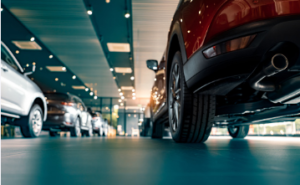Torque is more important than horsepower for cars that take turns at high speeds, particularly those taking twisty roads and tracks at great speed. Even if two cars with equal horsepower have similar torque numbers, the one with greater torque will prevail on twisty roads or tracks.
Torque tuning Adelaide can help increase torque significantly; the easiest method is changing the programming in your car’s “brain.” By doing this, it unlocks its full potential.
Acceleration
 At a dead stop, your car’s ability to accelerate is determined by torque. This up-and-down motion of pistons in your engine generates force, which then gets transferred to wheels that propel your vehicle forward. Torque determines how quickly your car goes from zero to 60 and even 100.
At a dead stop, your car’s ability to accelerate is determined by torque. This up-and-down motion of pistons in your engine generates force, which then gets transferred to wheels that propel your vehicle forward. Torque determines how quickly your car goes from zero to 60 and even 100.
Horsepower and torque are often confused with one another in car commercials, yet these two variables represent two entirely separate things. Horsepower determines your top speed, while torque determines how quickly a vehicle can accelerate from complete inertia.
Acceleration in your car depends on many elements, such as its power-to-weight ratio, gearing and aerodynamics – though a significant influencer of its acceleration is your driving style and how you use the accelerator pedal sensor (APS). Some easy-to-install, bolt-on solutions can significantly enhance the torque tuning of your vehicle – such as tuning motor output through ‘tunes’ and installing stronger suspension bushings – that can dramatically improve torque tuning Adelaide performance.
City Driving
Torque is a rotational representation of force and determines how quickly your vehicle can accelerate, impacting fuel efficiency.
Torque is generated when air and gasoline combine within your engine’s cylinders to generate pressure that quickly expands, pushing down on pistons until they press against their respective seats and push your car forward. From here, your crankshaft converts this downward movement into rotational force that spins the wheels and propels your car.
Driving in the city involves negotiating narrow passageways, circuitous roads, and fast maneuverability between vehicles and pedestrians. The tight driving space requires car drivers to adapt quickly to stay on course and navigate safely.
Off-Road Driving
Off-road driving requires higher torque than horsepower because drivers typically operate at much lower speeds and put less strain on engines and vehicles. They need to power over rocks, logs and other obstacles efficiently – and the higher their low-end torque levels are, the easier this will be for them.
Aftermarket upgrades may increase your car’s torque without requiring more mechanical modifications. A straightforward method is via an ECU ‘tune,’ which reprograms its ECU to unlock its full torque potential.
Modern vehicles with all-wheel drive often include torque vectoring systems to enhance off-road performance. These systems use computers and sensors to determine which wheel provides optimal traction, instantly and effortlessly shifting power from one side of the car to another. Torque tuning Adelaide vectoring systems have proven more reliable than brake-based solutions, which may prematurely overheat under heavy use and wear down tires.
Hybrids
Hybrid cars combine both gasoline and electric engines to drive forward. When more power is required for acceleration or climbing hills, the gas engine provides it; conversely, it recharges the battery when coasting or slowing down.
It is vitally important to consider the b and o parameters to optimise torque distribution on vehicles. To this end, a 7-DOF vehicle model is first constructed, then off-line model optimisation coupled with online MPC feedback is combined into an optimal torque coordination control strategy for optimal torque coordination control strategy; real-time online model correction is then performed in real time closer to the reference. Compared with traditional control without considering these factors, optimal models significantly enhance vehicle cornering ability.
Torque and horsepower are two of the most important metrics when discussing engine performance. These two terms may seem interchangeable to the uninitiated, but each has a very different function in automotive engineering. Understanding the difference between these two will help you better understand your vehicle’s capabilities and how it can be improved through tuning.